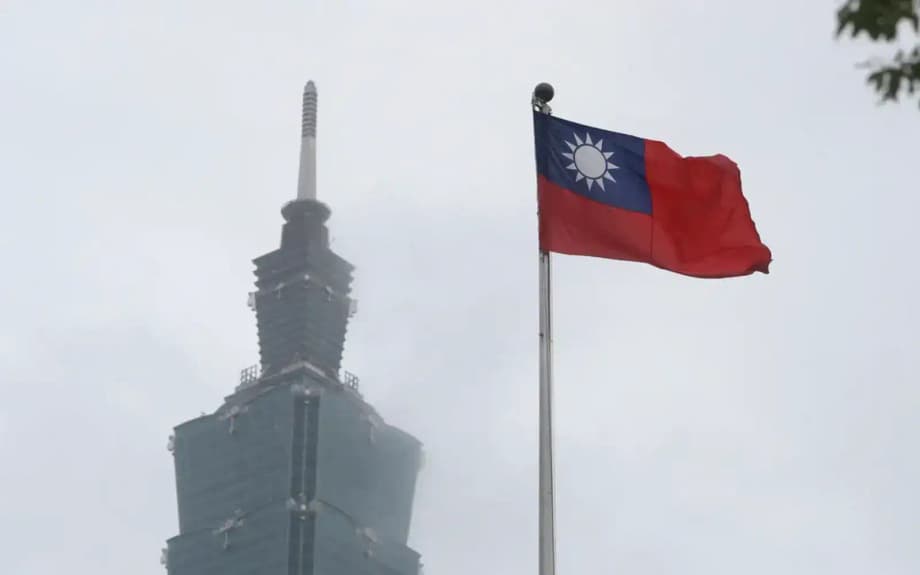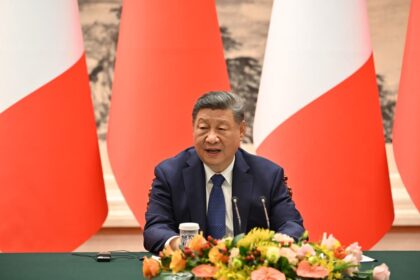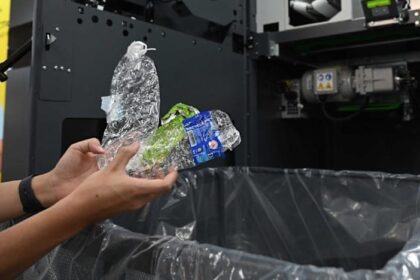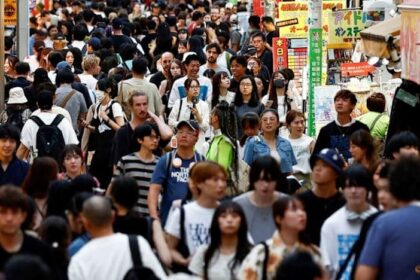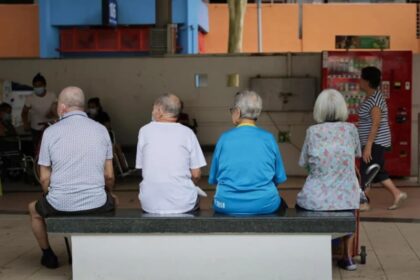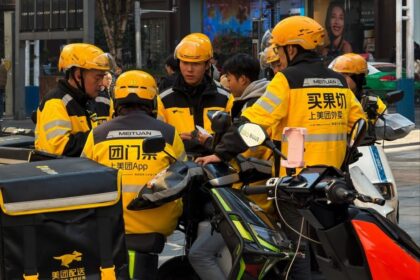Why Taiwan’s seat at APEC is under fresh scrutiny
The United States has urged China to ensure Taiwan can take part on a full and equal basis when Beijing hosts the 2026 Asia Pacific Economic Cooperation summit in Shenzhen. The call follows a complaint from Taipei that China has attached new conditions to Taiwan’s attendance. APEC is one of the few international bodies that include both China and Taiwan, and tensions around protocol, titles, and access often surface when Beijing is the host.
- Why Taiwan’s seat at APEC is under fresh scrutiny
- What Washington is demanding
- Beijing’s conditions and the one China principle
- Taipei’s complaint and safety concerns
- How APEC works and why the name Chinese Taipei matters
- A history of Taiwan at APEC
- Rising cross strait tensions around the summit
- What equal participation means in practice
- Potential responses from APEC members
- Key Points
China’s Foreign Ministry says Taiwan’s role must comply with the one China principle. Taiwan rejects that position and says Beijing has no right to represent it internationally. Washington’s position is that APEC members agreed by consensus for China to host in 2026, and that equal participation by all member economies is essential to the forum’s work. The debate is not a mere formality. It touches on questions of security for delegations, who gets to attend which meetings, and how Taiwan is treated vis a vis other APEC members during a year when China sets the agenda as host.
What Washington is demanding
US officials say the ground rules for 2026 were clear when APEC members endorsed China’s hosting bid. The State Department has stressed that the forum’s guidelines and established practices should apply to every member economy, including Taiwan, across all meetings and events. US officials have also underscored the need for robust security arrangements for every delegation, a point that resonates with Taipei’s concerns about safe access to venues and side events.
A State Department spokesperson framed the US expectation in straightforward terms before the host year begins in earnest.
“The United States insists on the full and equal participation of all APEC member economies, including Taiwan, consistent with APEC guidelines and established practices.”
Washington’s message signals that it plans to coordinate with partners to keep APEC operating as intended, with technical cooperation at the center and politics kept to a minimum. It also shows that the US will be watching how China manages visas, accreditation, security, and access for Taiwan’s representatives across the year long calendar of APEC meetings that culminate in the leaders week.
Beijing’s conditions and the one China principle
Beijing has reiterated that Taiwan’s involvement in APEC must align with the one China principle, which asserts that there is one China and that Taiwan is part of it. Chinese officials say this is the political prerequisite for Chinese Taipei, the name under which Taiwan participates in the forum. In practice, the one China principle is central to the ground rules China expects to apply as host, from titles and signage to the level of Taiwan’s representatives.
Foreign Ministry spokesperson Mao Ning has articulated China’s position in recent briefings.
“Taiwan’s participation in APEC activities must comply with the one China principle, and adhere to the provisions of the relevant APEC memoranda of understanding and established practices. This is the political prerequisite for Chinese Taipei’s involvement.”
APEC has a long standing memorandum that frames how Chinese Taipei participates. Taiwan enters under that name and typically sends minister level envoys or prominent civilian figures, not its president, to avoid turning an economic forum into a political stage. Chinese officials point to these arrangements, and to established APEC practice, to justify constraints during a host year in China.
Taipei’s complaint and safety concerns
Taiwan says China previously offered written assurances during the prior APEC cycle, including support for equal participation and commitments on the safety of attendees. Taiwan’s government now argues that Beijing has walked back those pledges by adding many new conditions for the 2026 host year in Shenzhen. Taipei has also raised concerns about the security of its delegation across meetings held throughout China.
Taiwan’s foreign minister, Lin Chia lung, outlined the complaint and vowed to work with partners to defend Taiwan’s place at APEC.
“China has now imposed numerous conditions on our participation in next year’s APEC summit in Shenzhen, which violates that prior commitment. We will defend our rights and coordinate with like minded nations to counter these actions.”
Taiwan’s position is that it participates as a separate APEC member economy, and that Beijing has no authority to represent the island internationally. Taipei points to APEC’s tradition of practical cooperation to argue that politics should not be used to restrict Taiwan’s access to working groups, ministerials, and the leaders week. The island also emphasizes that safe and dignified participation is a minimum requirement for any member economy in a host year.
How APEC works and why the name Chinese Taipei matters
APEC is a regional forum created in 1989 to advance trade, investment, and practical cooperation among 21 member economies. The forum uses the term economies rather than states or countries because APEC focuses on economic and trade issues. There are no binding treaty obligations and decisions are made by consensus. Capacity building is a major feature, and projects are developed through committees and working groups that run throughout the year. The official overview is available from APEC’s secretariat in Singapore at apec.org.
Taiwan joined APEC in 1991 as Chinese Taipei, a label designed to sidestep sovereignty disputes and allow it to participate in a non political setting. Under APEC practice and related memoranda, Taiwan does not send its president to the leaders meeting. Instead, it appoints senior envoys, such as former ministers or prominent private sector figures, who can represent its economic interests and engage in the forum’s agenda without triggering a political standoff over heads of state.
The distinction between the US one China policy and Beijing’s one China principle is also central to how different sides read the APEC playbook. Washington’s policy acknowledges China’s position without endorsing it, and it is grounded in the US Taiwan Relations Act and prior communiques. Beijing’s principle asserts that Taiwan is part of China and that the People’s Republic of China is the sole legitimate government. These positions often collide when protocol and naming issues arise in multilateral settings. Advocates for Taiwan also note that United Nations Resolution 2758 addressed China’s representation at the UN, but it did not determine Taiwan’s status, leaving space for Taiwan’s participation in non political bodies under formula names like Chinese Taipei.
A history of Taiwan at APEC
Taiwan’s experience in APEC has varied significantly depending on cross strait relations and the host economy. In 2001, Taiwan boycotted the APEC summit in China after a dispute over who could lead its delegation. When China last hosted in Beijing in 2014, cross strait relations were warmer and friction was lower. Taiwan still sent an envoy rather than its president, consistent with APEC practice, but the climate allowed for smoother logistics.
There are earlier moments that illustrate both the limits and the opportunities created by APEC’s economic focus. In 2005 in Busan, a Taiwanese envoy publicly shook hands with China’s then leader Hu Jintao, a rare gesture that signaled a brief easing of tension. More recently, Taiwan’s representatives used APEC meetings to engage with counterparts from the United States and Japan on areas where Taiwan has substantial economic weight, including semiconductors, digital trade, and small business resilience. These interactions underscore why Taiwan values APEC as a venue where it can contribute expertise and expand informal ties.
Rising cross strait tensions around the summit
The 2026 host year comes amid a period of heightened tension across the Taiwan Strait. China has increased military activity around the island and cut off communication with Taiwan’s current leadership. Each APEC host year features dozens of gatherings across the host economy, which makes security and protocol especially sensitive when relations are strained.
The broader backdrop of US China friction adds another layer. Trade measures, technology controls, and sanctions have become permanent features of the relationship. Policy analysts caution against any bargain that trades away Taiwan’s interests in exchange for narrow concessions. They expect both Washington and Beijing to push for their priorities at the APEC leaders week while avoiding a crisis that overshadows the forum.
What equal participation means in practice
Equal participation at APEC does not imply recognition of sovereignty. It means all member economies should have the same access to working group meetings, ministerials, and leaders week events under the forum’s rules. It also means consistent treatment on credentials, seating, speaking opportunities, and media coverage, subject to APEC’s established naming conventions.
For Taiwan, equal participation typically looks like the appointment of a senior envoy to represent the island, attendance at all relevant minister level meetings, and the ability to engage peers in bilateral conversations on trade, supply chains, and digital issues. The United States and several other economies argue that ensuring safe and orderly access for Taiwan’s delegation is a basic host responsibility that should be kept separate from political disputes.
Potential responses from APEC members
Taiwan says it will coordinate with like minded economies to hold the line on equal participation and safety. Japan has maintained regular contact with Taiwan’s APEC envoys in recent cycles, and the United States has been vocal about defending established practice. While no APEC member has formal diplomatic ties with Taiwan, many maintain robust unofficial links and see value in Taiwan’s technical contributions on semiconductors, digital health, and small business development.
As host, China has significant influence on logistics and program design, but APEC remains a consensus based forum. That structure gives other members avenues to press for solutions behind closed doors if disagreements threaten to derail meetings. The next test will come as the 2026 calendar of senior officials and ministerials takes shape, and as delegations seek clarity on visas, accreditation, and security protocols for Taiwan’s representatives.
Key Points
- The United States says Taiwan must have full and equal participation at China’s 2026 APEC host year, consistent with APEC practice.
- China says Taiwan’s role must comply with the one China principle and related APEC memoranda, with participation under the name Chinese Taipei.
- Taiwan alleges Beijing added new conditions and backtracked on earlier assurances about equal participation and safety.
- APEC uses the term economies, operates by consensus, and does not impose binding treaty obligations.
- Taiwan traditionally sends a senior envoy, not its president, to avoid political disputes at the leaders meeting.
- Tensions across the Taiwan Strait, and broader US China rivalry, raise the stakes for how Beijing manages Taiwan’s access in 2026.
- Equal participation in practice covers access to meetings, credentials, seating, speaking, and security protections for Taiwan’s delegation.
- Other APEC members are expected to press privately for workable arrangements if disputes threaten the forum’s agenda.


